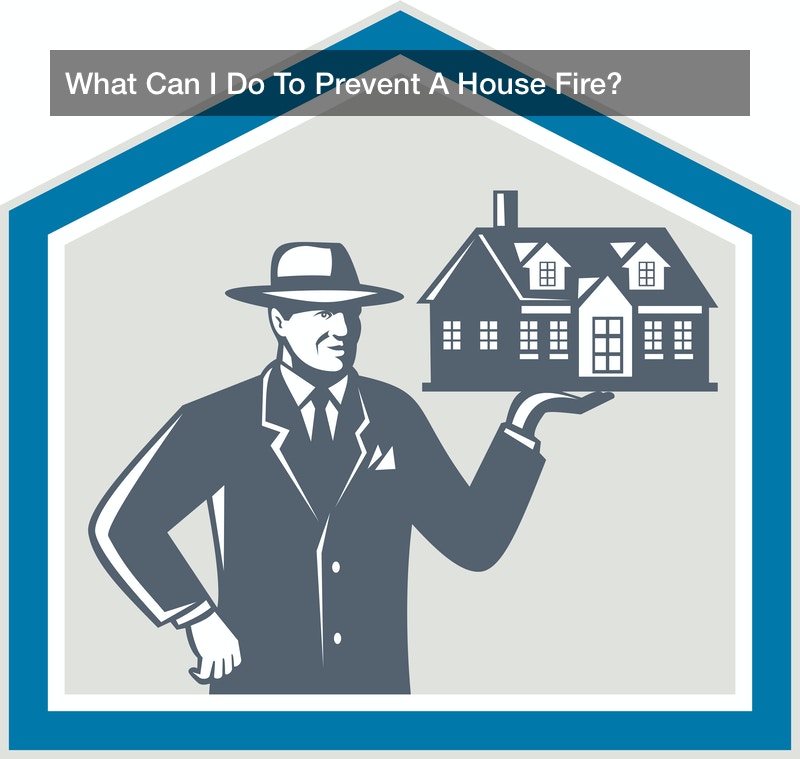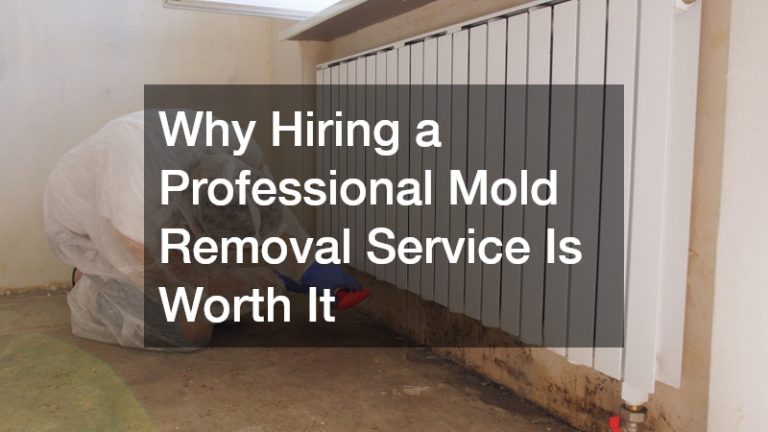

A house fire is the worst nightmare of many homeowners, and it can be incredibly difficult to recover from. Even if a family manages to avoid injury or even death in the case of a house fire, it’s almost impossible to go without some type of damage to your home or belongings. House fires are more common than you might think, and the ignorance surrounding the prevalence of house fires is one of the reasons why they cause so much damage when they do happen. We focus so much on what we’ll do to protect ourselves in the case of a fire — which is, of course, important — that we don’t pay enough attention to house fire prevention. There are many steps we can take to minimize the damage to ourselves and our homes when house fires happen. We all know that we can reduce the risk of personal injury through tactics like “stop, drop, and roll,” and wrapping minor burns in wet cloths can reduce your need for long-term medical attention. However, what about simply investing in house fire prevention in the first place?
To know exactly where you need to focus regarding house fire prevention, you should look first at what causes house fires. Furthermore, if you happen to be one of the many people who live in apartments, it’s possible certain things are out of your control. You should look into what can help prevent a house fire before you move forward with buying a home or renting an apartment. This could very well affect the type of home you invest in, as well as where you move in the first place. So many decisions can potentially be affected by the considerations necessary for proper house fire prevention. Let’s look into the causes of house fires, as well as how you can stop them from happening in the first place.
What Are The Most Common Causes Of House Fires?

It probably doesn’t come as a major surprise that a lot of house fires originally start in the kitchen. The kitchen obviously is the center of a lot of heat within a household, and there is a lot of potential for house fires to begin not only as you cook, but after you cook as well. Many amateur chefs leave burners and ovens on after they’re done cooking, which can lead to a slow-burning fire that homeowners don’t notice until it’s out of control. Furthermore, many of the ingredients that homeowners use to cook with are quite flammable. Think about how easily a fire can be started from the right combination of grease and hot surfaces.
Of course, another reason why fires tend to start in the kitchen, which extends throughout the house, is the amount of electrical equipment we rely upon. Many of us, in an effort to save a bit of money, find ourselves overusing a lot of plug-in appliances and other pieces of equipment. This can lead to fraying and eventual sparking, especially if your outlets and insular wiring are out of date as well. A lot of these pieces of electrical equipment are close to flammable materials, like carpets and pieces of furniture. A simple spark could easily ignite a full-blown house fire. This is why a lot of house fire prevention experts tend to recommend having your home inspected for fire safety on a semi-regular basis. Electrical wiring itself, deep within your home’s walls, can end up sparking as well.
Many people find themselves ignoring the parts of their home that they can’t see, at peace with this lack of knowledge and purposefully unaware of the problems it could lead to. For instance, a faulty spiral duct in your heating and air conditioning system could result in a fire starting within your home’s walls, which is even harder to spot than a typical house fire. Home heating oil could also potentially be linked to a fire. Much of this can be avoided through vigilance, as well as the replacement of out of date parts and systems. A lot of people attempt to save money by putting off this kind of home maintenance. But in the long term, they’re not only risking the loss of even more money, but injury or even loss of life as well.
Of course, some of the common causes of house fires are not so discreet and can be more easily prevented. If you have kids, for example, you might need to make more of an effort regarding house fire prevention than your childless friends might. Lots of curious children inadvertently start house fires, simply because they were playing with something they shouldn’t have. The fact is that kids often want to get into things that they shouldn’t, which is why many schools have firefighters visit and educate kids about house fire prevention, as well as what they need to do in the midst of a fire. A lot of children don’t realize exactly how dangerous some of their behaviors are, and a simple dare can spiral out of control quite quickly. For example, playing with matches or a lighter can end up triggering a house fire. The worst part of a house fire being triggered by a child, of course, is that the child is the most at risk.
Many of us indulge in things meant to relax us that could cause a fire in the long term. How many times have you left incense smoking, or a candle aflame, without realizing it? Candles, in particular, have become something of a craze, with lots of people collecting them and using them both for decoration and the calming sensations provoked by their scents. This ultimately can result in a fire, as many people leave these hazards aflame or smoking overnight. With that being said, simply because more conscious is a major part of house fire prevention in this respect. This is also the case with children, for the most part. But you can’t keep an eye on your kids at all times, and some things within your home can spark unpredictably. You can’t always fully prevent a house fire. However, there are ways in which you can prevent a spark from growing into a flame.
What Are The Best Methods Of House Fire Prevention?

Above, we mentioned the importance of monitoring your own lifestyle habits, as well as those of your children. It’s also crucial to have your home’s electrical wiring inspected on a regular basis. You should be prepared to make necessary replacements and updates. With that being said, there are other steps you can take to ensure that you’re making the best possible measures towards house fire prevention.
Fire alarm systems are, of course, incredibly important when it comes to house fire prevention. Many areas have legal requirements regarding fire alarms. These alarms may be somewhat irritating if they’re too easily triggered, which is why many homeowners temporarily disable them in an effort to keep them from going off too often. However, this is in the long term a huge mistake. While you may be attempting to prevent a temporary annoyance, you’ll actually be causing a major hazard for you and all others living within your home. Ideally, you should have a fire alarm installed in your kitchen, living room, and every bedroom in your home. If you have children, this is particularly important. Fire alarm systems should be at a high volume and involve flashing lights. This way, anyone in the home who is hearing impaired, even if only temporarily, will be able to see the alarm and be alerted to the fact that they need to exit the home immediately.
Of course, there are other, perhaps more intense ways of preventing fires as well. Fire sprinkler companies offer a way people can not only be alerted to the existence of a house fire early but also be saved from its effects. Having a fire sprinkler installed in your home allows you an extra level of safety, as it adds a degree of fire suppression. As soon as fire or smoke is triggered within the home, the fire sprinklers, installed through the house, will release gallons of water. This means that the fire is stopped before it gets out of hand. Of course, there are drawbacks to having fire sprinklers installed in your home. For one thing, it takes away a good amount of comfort for people who are drenched by the water and have their belongings similarly soaked. Another issue to consider is that of water damage. Water damage isn’t nearly as dangerous as fire damage, but it does require money spent on repairs. With that being said, the chances of the sprinklers being triggered will be lowered if you work on proper house fire prevention; and in the long term, it’s more important to prevent a house fire than it is to stop your home from sustaining damage through the sprinklers.
Some of the simpler ways through which you can prevent a fire, of course, simply have to do less with restricting your own behaviors than double-checking. If you are going to, for example, start a fire in your hearth or light candles, you might want to keep something of a checklist. Most people can begin with a checklist, and eventually, this starts a routine that will lead to you no longer needing that list. This is particularly helpful if you don’t have the best memory. You should also make a regular habit of ensuring that your fire prevention devices, like your alarm system or sprinklers, are working properly. Smoke detectors can, unfortunately, break far more easily than a lot of people might expect. This is why you should inspect them by hand, one by one.
What Are The Early Signs Of A House Fire?

If the worst does happen and a house fire sparks, there are a lot of early signs that many people miss. At times, you can detect these signs early enough to stop the fire before it gets out of control. Other times, you need to simply exit the home as quickly as possible, with your loved ones by your side. As previously mentioned, some house fires are more visually clear than others. If a house fire starts within the walls of your home, you may not begin to notice it until you smell smoke. Another early sign of a house fire starting within your walls is warmth felt through the walls. If you can press your hand against a wall and feel heat, you need to get out of the house and have professionals investigate further.
You should be aware of the fact that a house fire can ignite in as little as thirty seconds. There is no time to waste, and it’s better to be safe than sorry. That is perhaps the most important thing to remember about preventing a house fire. You need to remember that as annoying as it may be to take those extra steps and spend time that you would rather spend on other tasks, a fire isn’t worth risking it.

As long as you get yourself and all of your loved ones out of the house safely, a house fire doesn’t have to be the end of the world. There are definitely worse things that can happen; however, ultimately, you should, of course, do everything you can to prevent a house fire. Before buying a home, you need to make sure that you’ve investigated all possible risk factors for a fire, as well as what you can do to mitigate those risk factors as soon as you move in. After all, about 21% of Americans already make home improvements to suit changing lifestyle needs; why wouldn’t you give fire prevention the same consideration? A house fire doesn’t wait for you to get settled in, and you need to consider house fire prevention as a part of your overall budget. Otherwise, a house fire could very well be the result of your own negligence. With the few simple steps mentioned above, you’ll end up in a much safer home where you can actually relax.


